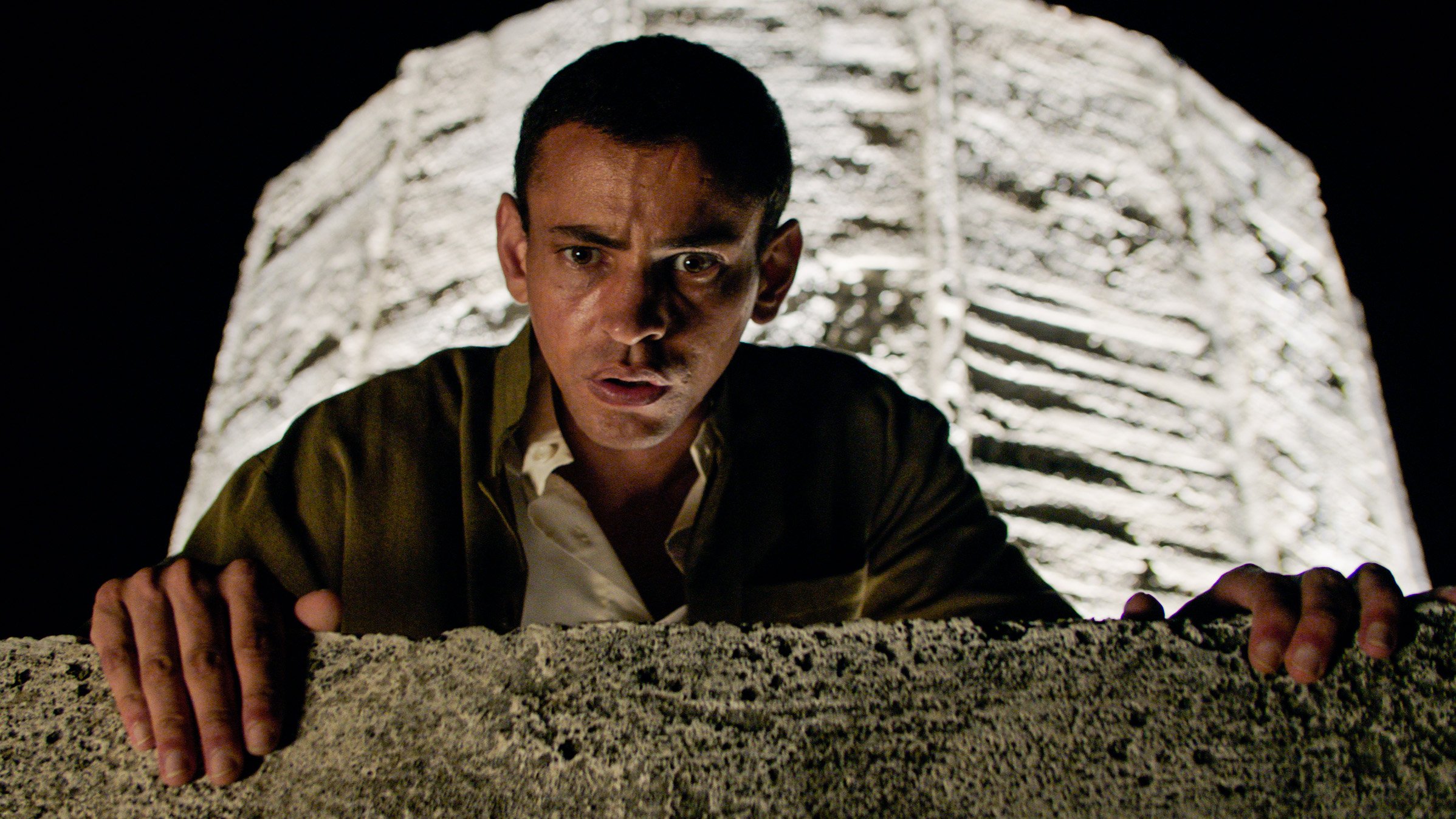Egypt’s recent history is one of revolution, counter-revolution, and state and religious oppression. Censorship means that films about contemporary Egypt are never to be negative of critical of the current regime. To this end, Swedish/Egyptian filmmaker Tarik Saleh made his film about the tensions between state and faith in Istanbul which substitutes for Cairo. A slow burn thriller, Cairo Conspiracy reveals the hypocrisy behind both politics and religion seen through the eyes of a young student, Adam (Tawfeek Barhom) who is given a scholarship at Al-Azhar University, the centre of Sunni Islam power in the country and a place where state politics has no perceivable power.
Adam is a regional young man, the son of a fisherman. Through his local Imam he is helped to be granted a scholarship to Al-Azhar where he hopes to learn to be a religious leader. Although his father is not keen to see his son leave, he grants that it is the will of Allah. Adam is a quiet and studious youth who carries the naiveite of one who has never left the provinces. Soon he will be caught up in a world he doesn’t recognise – that of the university itself and its differing doctrines, and a more dangerous one – the world of espionage.
Soon after Adam is settled at the University the Grand Imam dies which throws the government into chaos. They have long secretly infiltrated the institution which refuses to be co-opted by the state, but now they want to act to ensure that the Imam who is chosen is willing to co-operate with the government. Three candidates are possible. The most likely is the devout Blind Sheikh Negm (Makram J. Khoury) a man who will never co-operate with the government, Sheikh Al Durani (Ramzi Choukair) who has ties to The Muslim Brotherhood, and the government’s choice, the pliable Sheikh Omar Beblawi (Jawad Altawil).
Tasked by his superiors, including the young and zealous Sohby (Moe Ayoub), Colonel Ibrahim (Fares Fares) must use one of his moles, or ‘angels’ already installed at the University to manipulate the election of the new Imam. Ibrahim’s current ‘angel’ is Zizo (Mehdi Dehbi) a foreign student and assistant to Sheikh Negm. Zizo fears his cover has been blown and is tasked to find another student with no political or local family connections to take his place. When he spots Adam, he realises he has the perfect mark. Adam is mild, lonely, and pliable. A night out on the town, a few conversations, and Zizo’s brutal murder later and Adam is Ibrahim’s new ‘angel.’
Tarik Saleh utilises espionage tropes to make a stance on the hypocrisy of both the government and those who wear faith as a means to disguise their own failings. As Adam is further embroiled in the machinations of others he realises that there are those who abuse their positions on both sides. Even his world-weary handler (Fares Fares is excellent) is torn between the new and old. They meet in an Americanised café, but Ibrahim also chastises Adam for not washing his feet correctly. One of the Sheikh’s Adam ends up working for has a penchant for McDonalds and has secretly “married” and impregnated his family’s maid’s daughter. All the beauty of his faith is stripped away as he watches modern day Jihadists use religion as a way to channel their violent urges.
Adam becomes stuck. Ibrahim at first cajoles him with promised assistance to his father then later threatens that he will burn his family’s boats. Whether Ibrahim would go through with the latter threat is irrelevant, it is there, and Adam has no choice but to be a pawn.
A line that gets repeated is “Al-Azhar and the state should never be in conflict – that could lead to civil war.” Saleh proposes that the two institutions are not actually that different. There are good men and bad men in both, and neither is free from corruption.
Tawfeek Barhom is effective as Adam as he tries to survive the pressure cooker that has become his life. He has a stillness and a way of expressing the well of despair he is facing without ever labouring. Although the film is a thriller it is also a character study of the young man and as such Barhom’s ability to convey all that he is losing (his future, his family, possibly his life, perhaps his faith) with conviction.
Cairo Conspiracy won the Cannes Award for Best screenplay, and although Saleh’s work is essentially a genre piece its criticisms of contemporary Egypt are interwoven competently. The audience can read the film in a number of ways; as a thriller, as a commentary, as a character piece and each reading will reward. An Imam asks Adam “What did you learn?” and it is something he cannot answer, just as there seems to be no clear answer for Egypt’s current situation.
Director: Tarik Saleh
Cast: Tawfeek Barhom, Fares Fares, Mohammad Bakri
Writer: Tarik Saleh



